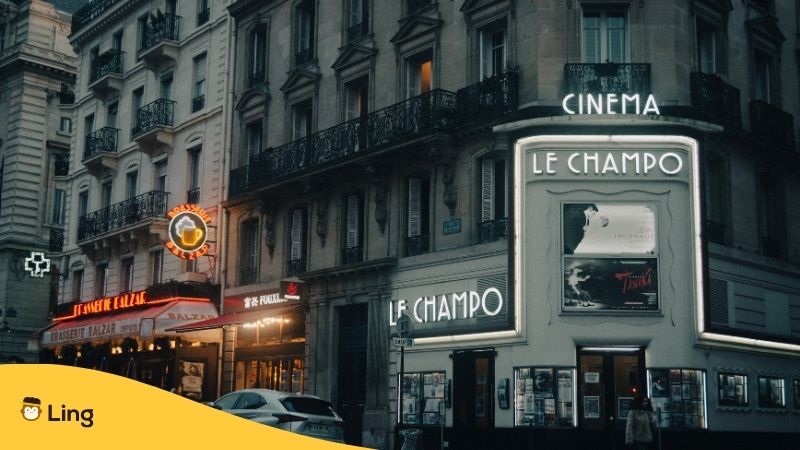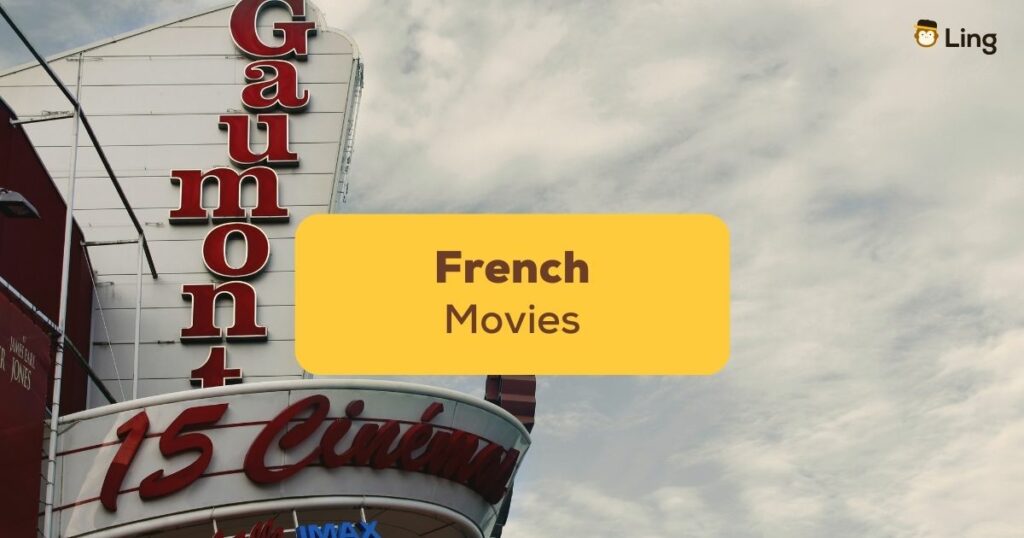Watching French movies is a brilliant way to get better at the French language. And as French cinema has some of the greatest films ever put on celluloid, watching them to help you learn the language is a complete pleasure, too. From the early days of silent films to contemporary masterpieces, French movies have left an indelible mark on the landscape of world cinema. This time, we will be treating ourselves to the best of French film, exploring its history, influential filmmakers, iconic films, and the enduring legacy it has created.
A Historical Journey
The birth of French cinema can be traced back to the Lumière brothers’ pioneering work in the late 19th century. Their invention of the cinematograph laid the foundation for the development of the art form, and France soon became a hotbed for cinematic experimentation.
French filmmakers pushed the boundaries of storytelling and early special effects, creating a distinct identity for French cinema. Georges Méliès film “A Trip to the Moon” (1902) features a spaceship hitting the eye of the moon, which has become one of the most iconic images in cinema history. And Louis Feuillade, another pioneer of the silent film era, is most famous for his crime serials.
French New Wave Cinema
The Golden Age of French Cinema emerged in the 1950s and 1960s when filmmakers such as Jean-Pierre Melville, François Truffaut, Jean-Luc Godard, and Alain Resnais pioneered the French New Wave movement. Rejecting traditional conventions, these directors embraced unconventional narratives, jump cuts, and handheld cameras, giving birth to a new era of artistic freedom and innovation.
Movies from this era became iconic examples of this cinematic rebellion and are still considered some of the best French movies ever made. Truffaut’s “The 400 Blows” is about a young boy from Paris, and “Jules et Jim” is a tragic story of two friends set during World War I. Godard’s “Breathless” is a French crime drama with an incredible French language performance by Jean Seberg. And Resnais’ “Hiroshima Mon Amour” tells the story of a young Japanese architect and his intensely personal conversations with a young French actress.
Notable Directors And Actors And Their Contributions
French cinema boasts an impressive roster of visionary directors and actors who have shaped the industry.
Jean-Pierre Jeunet
One such luminary is Jean-Pierre Jeunet, known for his whimsical and visually stunning films like “Amélie” and “The City of Lost Children.” Jeunet’s films masterfully combine a poetic narrative with inventive visual storytelling, creating a world where reality and fantasy coexist. He even went on to do Alien 4!
Claude Chabrol
Claude Chabrol, often dubbed the “French Hitchcock,” is renowned for his suspenseful thrillers that explore the dark side of human nature and French society. His best movies, like “Les Biches” and “La Cérémonie” showcase his meticulous attention to detail, intricate plotting, and nuanced character development.
François Ozon
The name of French cinema would be incomplete without mentioning the prolific works of François Ozon. With a diverse filmography ranging from introspective dramas like “Swimming Pool” to provocative narratives such as “In the House,” Ozon consistently challenges cinematic norms and delves into the complexities of human relationships.
Isabelle Huppert
Isabelle Huppert, a stalwart of French cinema, has consistently delivered powerful performances throughout her career, whether in TV movies or on the big screen. Her collaborations with directors like Michael Haneke in “The Piano Teacher” and Paul Verhoeven in “Elle” demonstrate her versatility and ability to portray complex, morally ambiguous characters. Her performance in Elle put her in the running for the Best Actress Oscar, and she still holds the record for the actress with the most official competition entries at Cannes.

Cultural Reflection And Artistic Exploration
French drama often reflects the sociopolitical climate of the country, serving as a mirror to its society. Films like Mathieu Kassovitz’s “La Haine” tackle themes of social inequality and urban unrest, offering a raw and unfiltered portrayal of marginalized communities. Similarly, Abdellatif Kechiche’s “Blue is the Warmest Color,” a breakout film of the Cannes Film Festival, explores the complexities of love and sexuality, challenging societal norms.
French filmmakers have also demonstrated a propensity for philosophical introspection. Krzysztof Kieślowski’s “Three Colors” trilogy (Blue, White, and Red) delves into the themes of liberty, equality, and fraternity, examining the human condition with profound depth and emotional resonance. The surrealist works of Jean Cocteau, including “Orpheus” and “Beauty and the Beast,” invite audiences into a dreamlike realm where reality and imagination intertwine.
French Phrases To Use If You Like A Film
… And Phrases For If You Don’t

Learn More French Film Vocab With Ling App
Ling app has all the tools you will ever need to wax lyrical about French films with your French friends. With loads of fun quizzes and games, learning with Ling app is never a chore. Try Ling today by visiting the App Store or Google Play.



































































